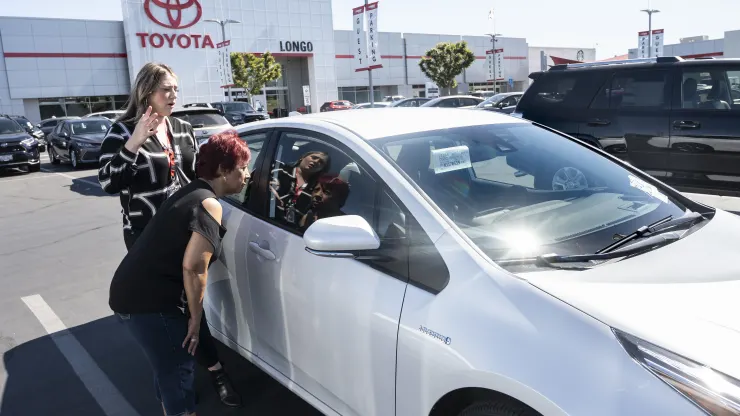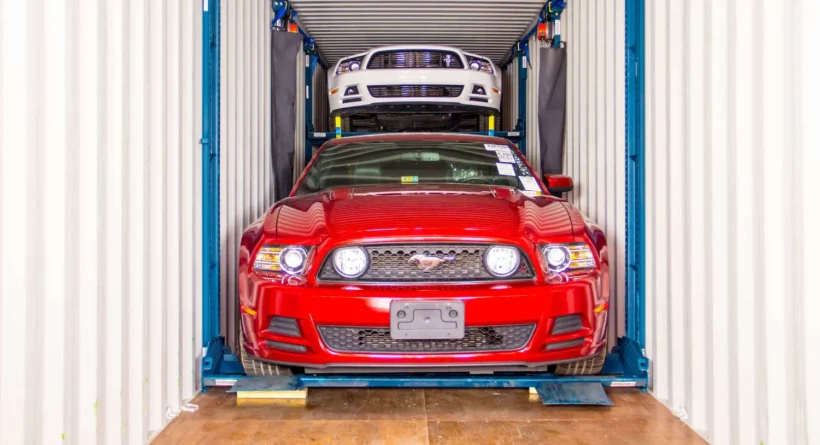Thinking about buying a car you’ve always wanted out of state? It’s a pretty common practice – in fact, lots of people do it for various reasons. It might be a specific make/model that’s hard to find locally, or the deal is too sweet to pass it up. But getting a car out of state isn’t just about benefits. You have to take into account certain aspects. For example, it’d be best to know in advance about the cost to ship a car cross country or the time it will take to reach you after the deal is finalized. Let’s look into the details and figure out the most efficient way for you to get your hands on the car you’re eyeing.
Benefits of Buying a Car Out of State

- Wider selection and availability: The best thing about getting a car out of state is opening up a whole new world of possibilities. You’ll get access to a much wider selection of vehicles than you would by only sticking to local dealerships. Thus, you increase your chances of finding something you really like (the right color, must-have features, etc.).
- Potential for lower prices and better deals: Buying a car is not just about what we like. In most cases, it’s what we can afford. Different states offer different prices (due to factors like lower demand or extra taxes). Digging up a bit, you can save a pretty substantial sum.
- Access to unique vehicles: Even if you have an almost unlimited budget, you can’t buy a car that’s not in stock. Getting rare or unique cars implies tireless searching and quite lengthy deal arrangement. In most cases, such cars can be found in different parts of the US and even abroad. So, don’t be afraid to broaden your search, as you never know what amazing finds are waiting for you just across state lines!
Research and Preparation
Before you embark on your out-of-state car-buying journey, there are a few key aspects you need to research and prepare for. First of all, pay attention to the state laws and regulations applying to your future purchase. We are talking about your home state’s emission standards, sales tax, and title and registration process. It’s unlikely that you’ll want to make the paperwork even more complicated.
You’ll be required (in most cases) to pay sales tax in the state where you register your vehicle (let’s assume it’s your home state). It’s a pretty important thing to keep in mind if you want to avoid any surprises. By the way, some states allow you to pay the tax right in the dealership via a reciprocal agreement.
Once you’ve bought your car, you’ll want to keep things legal. Thus, your car should be registered. Registration fees vary depending on the state. Some states even require additional fees for title transfer, license plates, or emissions testing. Take into account covering these costs as part of your out-of-state car purchase.
Also, make sure your dealership (or private seller) is reputable and trustworthy. Low prices might lure you in, but scammers won’t send a decent car to you. The more straightforward way to do so is to check customer reviews and verify the credentials of the seller you’re considering. Always trust your instincts and be cautious of offers that sound too good to be true.
Vehicle Inspection and Test Drive
Found a car that checks all your boxes? Schedule a pre-purchase inspection. The safest way is to hire a qualified mechanic to give the car a thorough once-over and identify any potential issues. This step is obviously a must-do, as you’re unlikely to want to buy a lemon (especially if you’re gonna get a rare or unique car).
After you get the green light from your mechanic (or any person you trust on the matter), test the car out. Test drive gives you a real feel for the car and all its bells and whistles. Pay attention to how the vehicle performs and how comfortable it is. Don’t forget to check all your daily essentials, like cargo space, fuel efficiency, and ease of parking. You’ll want your new ride to truly fit your lifestyle (or any purpose checkmarks). A car is a pretty big purchase, so take your time.
Negotiating and Closing the Deal
Liked the car after all the inspections? Now it’s time to talk numbers and close the deal. Before diving into negotiations, make sure you’ve done your homework. You should know the car’s market value and identify any potential leverage points you can use (like lower prices in nearby areas or any issues found during the inspection).
Once you’ve reached an agreement on the price, finalize the transaction. Be prepared to complete all the necessary paperwork, pay any taxes and fees associated with the purchase, and arrange for the title transfer. Make sure you read all the documents carefully and ask questions if anything is unclear.
Transporting Your New Car

As soon as you close the deal, the temptation to drive your new ride can be unbearable. But first, you need to somehow deliver the vehicle to your home. Currently, we assume your car is in another state.
The most obvious solution is driving it by yourself. All you have to do is to plan your route and make sure you have temporary registration and insurance in place. Sounds simple and straightforward, right? But it’s not always the best solution. Sometimes, you don’t have time or desire for it, or you simply want to cut down on the potential costs.
Car shipping services do exactly what you need – they load a bunch of vehicles and deliver them to the destination (roughly speaking, dividing the costs between car owners). Even more, we bet you don’t want to stress your luxury vehicle out on a 1000+ miles road.
In this case, a car shipping service brings your vehicle right to your doorstep, and just like that – you get your car hassle-free.


